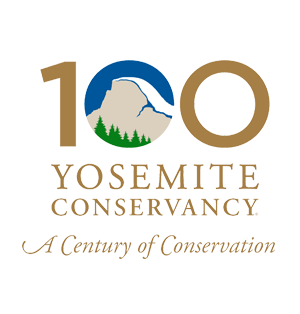Meadows are an incredibly important part of the Yosemite ecosystem. Not only are they ecologically rare, making up less than 2% of Yosemite’s landscape, but they are extremely valuable.
One acre of meadow can produce up to two tons of forage per year—this means a lot of good hunting and foraging area for animals such as raptors, deer and songbirds.
Meadows as Water Purifiers
Meadows also act as natural water purifiers, filtering sediment from run-off so nearby streams run clean and aquatic life thrives. A large percentage of the park’s species thrive in these relatively small areas. Yosemite Conservancy has been working with its partners and volunteers to complete meadow and other habitat restoration throughout the park.
How to Restore a Meadow
Meadow restoration work includes:
• Filing ruts created by traffic
• Planting seedlings • Removing social trails
• Removing invasive and non-native plant species
• Removing asphalt and installing raised boardwalks that preserve meadow water flow while allowing visitors to enjoy the meadow vistas
• Delineating single track footpaths to prevent deeply rutted trails
• Decompacting soil to facilitate regeneration of native vegetation
• Removing irrigation ditches to restore natural hydrology to meadow area
Green Restorations
How do you restore delicate habitat without using heavy equipment or causing more damage with foot traffic and tools? Here are some of the meticulous standards used by our project teams:
• Accessing work sites, such as meadow or lake shore, by regularly changing the way the site is approached. For example, people spreading out when crossing the meadow and changing lunch and break sites often.
• When new soil is required to fill ruts it is often taken from ground squirrel tunnel remains
• Removing evidence of shovel marks when ‘harvesting’ soil from ground squirrel remains
• Raking up vegetation at the end of the project
Examples of successful restorations: Carlon Meadow, Cook’s Meadow, El Capitan Meadow, Harden Lake Road Removal, Lukens Meadow, Royal Arches Meadow, Stoneman’s Meadow, Wawona Meadow and Velvet Grass Removal (invasive weed).

